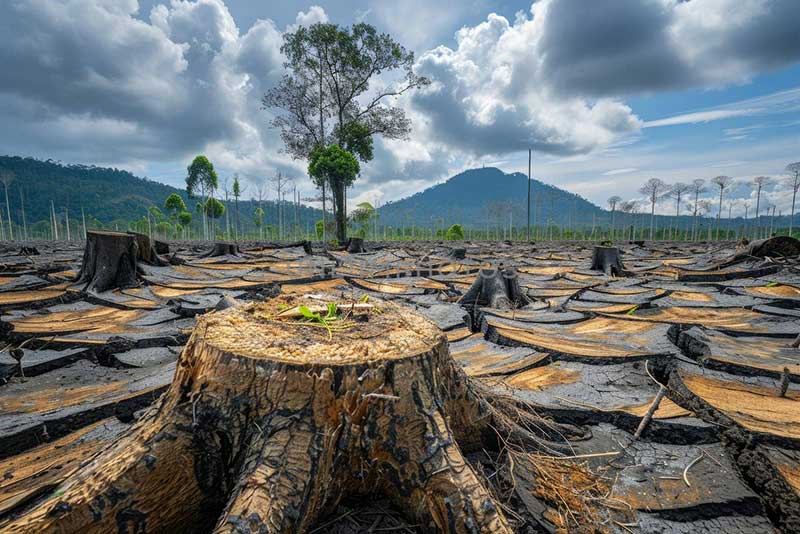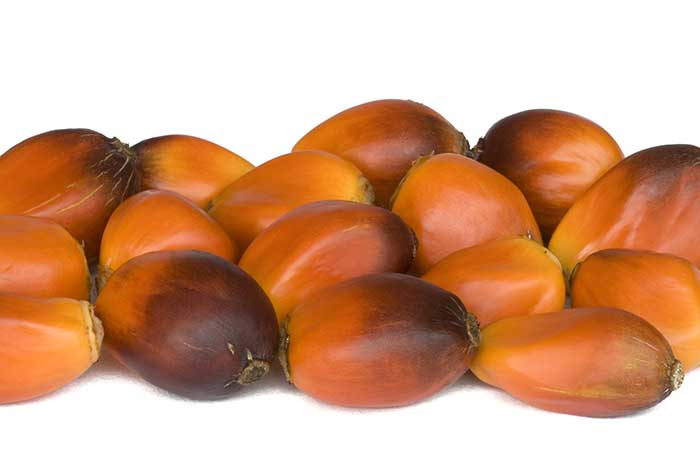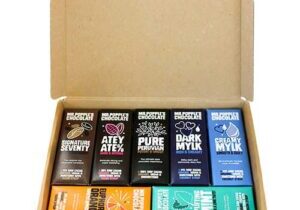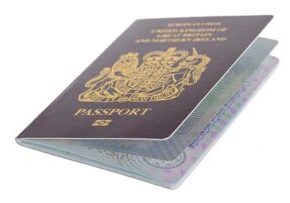BLOG
Palm Oil: The Silent Invasion
Here at Mr Popple’s Chocolate, our Peruvian chocolate bas are completely palm oil free. We believe that chocolate should NEVER be padded out with pesky additives.
However, the devastation caused by palm oil production is the real reason why it could never be a part of our chocolate making process!
The Invisible Invasion Crippling Our Planet

Lurking in nearly half of all packaged products, a silent threat has infiltrated our lives – palm oil. This ubiquitous ingredient, found in everything from pizza to deodorant, is leaving a trail of devastation in its wake.
Beneath the unassuming label lies a harsh reality: vast swaths of precious rainforests razed, habitats obliterated, and countless species pushed to the brink of extinction. All to satisfy our insatiable demand for this versatile, cost-effective oil.
Yet, the true cost extends far beyond the environmental toll. Indigenous communities displaced, workers exploited, and a ticking time bomb of climate catastrophe – the palm oil industry’s dark secrets can no longer remain shrouded in obscurity.
What is Palm Oil and Why Should You Care?
The Versatile Villain in Your Pantry
Palm oil, a versatile and cost-effective ingredient, has become ubiquitous in the food industry, particularly in chocolate production. However, the environmental and social impacts of palm oil cultivation have raised concerns among consumers and sustainability advocates. The demand for palm oil free chocolate has grown as people become more aware of the issues surrounding palm oil production.
Staggering Statistics on Global Palm Oil Production
Palm oil is a staple in much of our food and lifestyle products we use on the daily. A staggering 38% of the world’s vegetable oil production is taken up by palm oil, with a whopping 62 million tonnes produced every year! These mind-boggling figures underscore the sheer scale of the palm oil industry and its far-reaching impact on our planet.
The Hidden Presence of Palm Oil in Everyday Products
Lurking in nearly half of all packaged products, palm oil has infiltrated our lives without us even realizing it. From pizza and doughnuts to deodorant and lipstick, this ubiquitous ingredient hides under various guises on ingredient lists, such as “vegetable oil,” “sodium lauryl sulphate,” and “stearic acid.” It’s a silent invasion that has crept into our daily routines, often disguised and undetected.

Nature’s Cry for Help
Deforestation and Habitat Destruction
The rapid expansion of palm oil plantations has led to deforestation and habitat destruction, particularly in Southeast Asia. Vast swaths of precious rainforests are razed to make room for these plantations, obliterating the homes of countless species and disrupting delicate ecosystems.
Endangered Species on the Brink
Iconic species like the Orangutan and Sumatran rhino face extinction every day as their habitats are destroyed to accommodate new palm oil plantations. These majestic creatures, once thriving in their natural environments, now cling to survival as their homes are relentlessly encroached upon.

Carbon Emissions and Climate Change
The soils in the areas where palm oil is grown are rich in carbon. As these lands are cleared for plantations, tonnes of greenhouse gases are released into the atmosphere, contributing to the ever-growing threat of climate change. Each acre of deforestation is a step closer to an environmental catastrophe.
Human Exploitation in the Name of Profit
Unethical Labor Practices and Worker Exploitation
Behind the scenes of the palm oil industry lies a dark reality of worker exploitation. Reports have surfaced of unethical labor practices, with workers and even children being subjected to grueling conditions to meet the insatiable demand for palm oil.
Violence Against Local Communities
In a disturbing turn of events, Greenpeace has reported instances of violence and local communities being forcibly removed to make way for palm oil plantations. The pursuit of profit has come at the expense of human rights and the well-being of indigenous populations.
Livelihoods and Health Impacted by Pollution
The environmental impact of palm oil production extends far beyond deforestation. WWF reported that a single palm oil mill generates a staggering 2.5 metric tons of effluent for every metric ton of palm oil produced. This toxic waste ends up polluting freshwater sources, affecting the health and livelihoods of communities and farms that rely on these water bodies downstream.
Palm Oil’s Devastating Impact – Rainforests Razed to the Ground
Alarming deforestation rates in Indonesia and Malaysia
In Indonesia and Malaysia together, approximately 4.5 million people earn a living from palm oil. In 2019 it was reported that over 25% of Indonesia’s rainforests have been deforested and replaced with vast palm oil plantations.
Equivalent of football fields destroyed every hour
Further research from Rainforest Rescue shows that the equivalent of 300 football fields are being destroyed every hour.
United Nations’ stance on palm oil’s environmental impact
The UNEP (United Nations Environmental Programme) named palm oil production as ‘the primary cause of permanent rainforest loss’, highlighting the severity of palm oil’s negative impact on the environment.
Poisoning Our Waters, Poisoning Our Future
Toxic effluents polluting freshwater sources
WWF reported that just one ‘palm oil mill generates 2.5 metric tons of effluent for every metric ton of palm oil produced’. Effluent is waste and/or sewage that leaves an area and is destined for freshwater or large bodies of water. This waste ends up polluting these spaces.
Communities and farms affected by contaminated water
Though it isn’t just the environmental aspect of these actions that is worrying. Many communities and farms rely on the water downstream, meaning that the polluted water affects many people’s health and wellbeing, as well as their livelihoods.
The Hidden Danger in Your Diet
Link between palm oil and cancer risk
A recent study completed by the Institute for Research in Biomedicine in Barcelona, found a link between palmitic acid (an acid found in palm oil) and the spread of mouth and skin cancers, highlighting how important it is to pay attention to what you include in your diet and skin regimen.
Importance of scrutinizing ingredient lists
Labels of products containing palm oil can often mislead customers, with the oil sometimes disguised under another name on the ingredient list. E.g. Vegetable Oil, Sodium Lauryl Sulphate, Stearic Acid and Palmitic Acid etc.
Misleading labeling tactics used by manufacturers
Palm oil truly has invaded our lives without us even knowing. It is a staple in much of our food and lifestyle products we use on the daily. But, there is a way to limit our consumption and reliance on palm oil based products.
Chocolate’s Bitter Betrayal: The Palm Oil Connection
The Allure of Smooth and Stable
One of the main reasons why palm oil is included in other brands’ chocolate is for its anti-melting properties. The oil helps to stabilise the chocolate whilst also giving it a smooth texture. However, these properties can be achieved by using different and more ethical ingredients. And this is the approach that we prefer to take!
Misconceptions About Palm Oil’s Necessity
Palm oil is known to have a high saturated fat content. This can negatively affect our heart’s health. We think it’s important to keep your ticker as healthy as can be, this is why you won’t find any palm oil in Mr Popple’s Chocolate.
A Healthier Indulgence: Our Palm Oil-Free Promise
At Mr Popple’s, we are already strong believers in the idea that chocolate CAN be guilt-free. In this instance, our chocolate is not only a healthier alternative, but you can rest assured knowing that every chocolate bar we produce is a warrior for good!
Our chocolate is palm oil free, ethical, organic and ALWAYS fairly traded.
Decoding the Labels: Spotting Palm Oil
If the products you’re picking up contain a high proportion of saturated fat, and the label lists “vegetable oil” or “vegetable fat” it’s a big indicator of palm oil.
Some companies list the fact they don’t use palm oil, and will take pride in putting “palm oil free” on their labels, or may even put “sustainable palm oil” as well.
Voting with Your Wallet: Ethical Choices
By not buying into the industry, there will be less demand, and less reason for these companies to grow even more palm oil plantations, and in our opinion, the less is better….Our ethically sourced chocolate ensures that you are investing in something good. All of our practices are sustainable, with our cacao also being fairly traded. All of our products are completely palm oil free and vegan, helping to combat the devastation of palm oil one little bar at a time!










